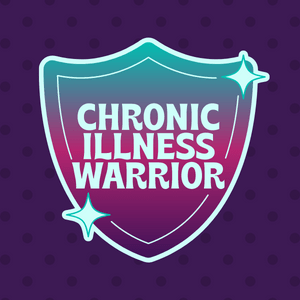Illnesses come in different forms and durations, and one key aspect of health that often poses challenges is whether an illness is acute or chronic. While acute illnesses are typically short-term and resolve within a relatively brief period, chronic illnesses are enduring and may persist for years or even a lifetime. But what makes an illness chronic? In this article, we will explore the characteristics of chronic illnesses and delve into the factors that contribute to their development and management.
Defining chronic illnesses
The National Center for Chronic Disease Prevention and Health Promotion (NCCDPHP)” “Chronic diseases are defined broadly as conditions that last 1 year or more and require ongoing medical attention or limit activities of daily living or both.” These conditions can impact various aspects of a person’s life, including their physical, emotional, and social well-being. Chronic illnesses can be caused by a wide range of factors, such as genetic predisposition, lifestyle choices, environmental factors, and infectious agents. However, the specific reasons why some illnesses become chronic are complex and multifactorial.
Factors that Contribute to Chronic Illnesses
Role of genetics in chronic illnesses
One key factor that contributes to the development of chronic illnesses is the interplay between genetics and environmental factors. Certain genetic mutations or variations can increase a person’s susceptibility to chronic illnesses. For example, a family history of heart disease may increase an individual’s risk of developing chronic cardiovascular conditions, such as hypertension or coronary artery disease. However, genetics alone do not determine the outcome, and environmental factors can also play a crucial role. For instance, lifestyle choices such as poor diet, lack of physical activity, and smoking can increase the risk of developing chronic conditions like obesity, diabetes, and chronic obstructive pulmonary disease (COPD).
Impact of environmental factors on chronic illnesses
Environmental factors play a crucial role in the development and exacerbation of chronic illnesses. Exposure to air pollution, water contamination, occupational hazards, climate change, lifestyle factors, toxins, indoor air pollution, noise pollution, access to green spaces, and environmental justice can all impact chronic health conditions.
Here are a few examples:
- Long-term exposure to air pollution, such as fine particulate matter, can worsen respiratory conditions like asthma and COPD, and increase the risk of cardiovascular diseases.
- Contaminated water sources can lead to gastrointestinal diseases and waterborne infections, while occupational exposures to harmful substances like chemicals
- Radiation can increase the risk of cancers and other chronic health conditions.
- Climate change can affect respiratory health, spread of infectious diseases, and exacerbation of allergies and asthma.
- Lifestyle factors like poor diet, lack of physical activity, and high stress levels can contribute to the development of chronic illnesses like obesity, diabetes, cardiovascular diseases, and mental health conditions.
- Exposure to toxins in food, water, and household products can also contribute to chronic health issues like neurological disorders and hormonal imbalance
The role of inflammation in chronic illnesses
In addition to genetics and environmental factors, inflammation is another key process that can contribute to the development of chronic illnesses. Inflammation is a natural response of the body’s immune system to injury or infection, but when it becomes chronic, it can lead to tissue damage and contribute to the development of various chronic conditions. For example, chronic inflammation in the joints can lead to rheumatoid arthritis, while chronic inflammation in the airways can contribute to asthma.
The significance of risk factors in the development of chronic illnesses
Furthermore, the presence of certain risk factors can increase the likelihood that an illness will become chronic. Risk factors are conditions or behaviors that make an individual more susceptible to developing a particular health condition. For example, uncontrolled high blood pressure, high cholesterol levels, and obesity are risk factors for developing chronic cardiovascular diseases such as heart disease and stroke. Similarly, a history of heavy alcohol or tobacco use can increase the risk of developing chronic liver or lung diseases, respectively.
Once an illness becomes chronic, managing it becomes an ongoing process that requires long-term medical care and lifestyle changes. Chronic illness management often involves a combination of medical interventions, such as medications, surgeries, and therapies, as well as lifestyle modifications, such as diet and exercise. Additionally, managing the emotional and social impacts of chronic illness, such as dealing with the psychological toll, maintaining relationships, and coping with changes in daily life, is also crucial.
Conclusion
In conclusion, chronic illnesses are health conditions that persist for an extended period and require ongoing medical care and management. The development of chronic illnesses is complex and can be influenced by factors such as genetics, environmental factors, inflammation, and the presence of risk factors. Managing chronic illnesses often involves a combination of medical interventions and lifestyle modifications, and addressing the emotional and social impacts of these conditions is also crucial. It is important for individuals with chronic illnesses to work closely with their healthcare providers to develop a comprehensive and personalized management plan to optimize their overall health and well-being.














